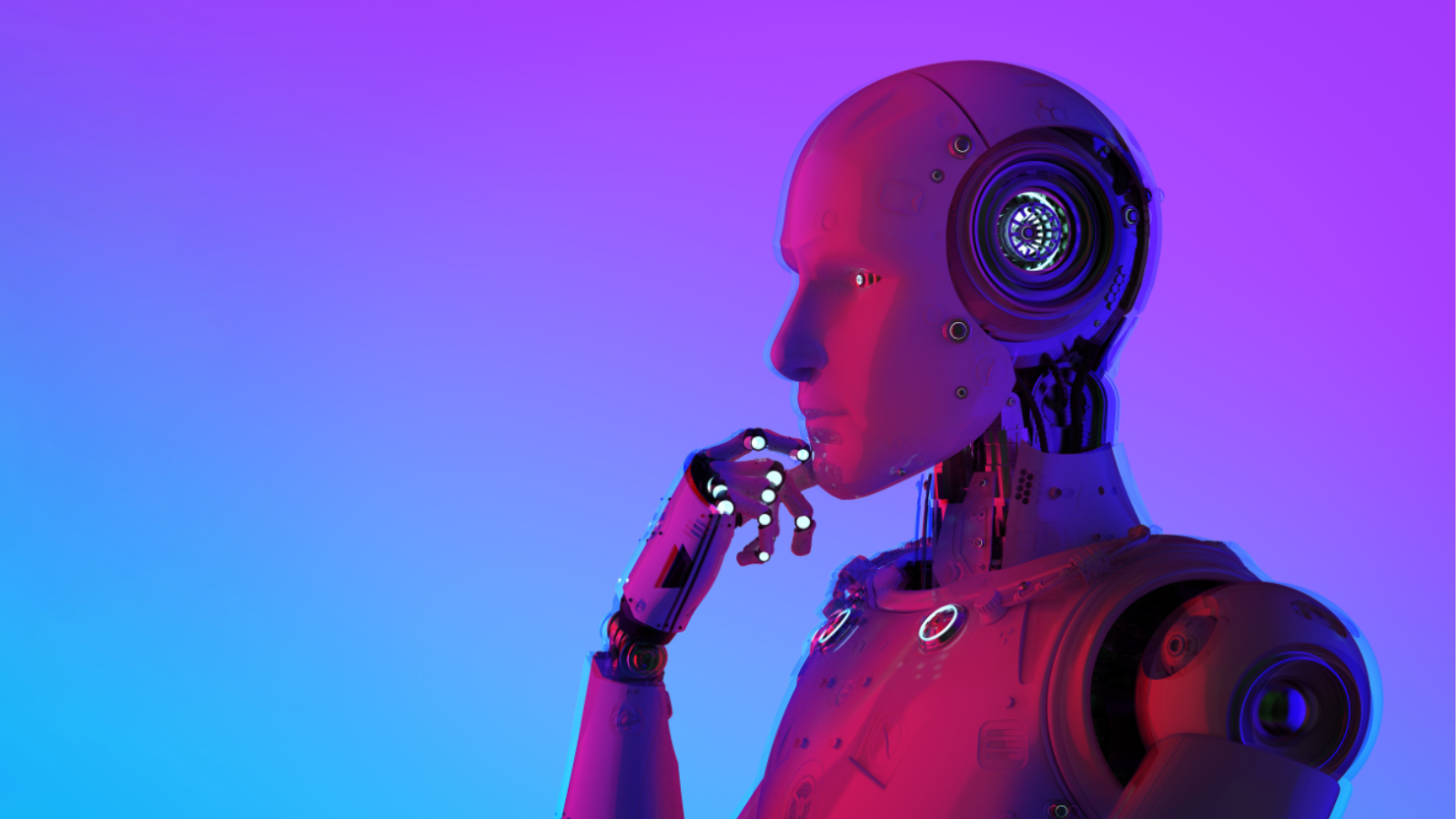It feels like every day there’s a new shocking or impressive application of artificial intelligence that crosses beyond the “Hey, that’s neat!” reaction and into “Was Terminator 2 a documentary?’ territory.
Artificial intelligence has been around for awhile, but it’s gained traction in the past few years, leading most of us to the realisation that the way we live our lives and do our jobs is going to continue changing significantly over time.
Let’s explore how AI might impact our tech sector – we’d love to hear your thoughts too!
Why is artificial intelligence suddenly so popular?
Many will remember the announcement of the iPhone back at the start of 2007. While that device completely changed the phone industry, it wasn’t the first time a ‘smartphone’ was released. Phones like the blackberry, early offerings by Samsung, and other semi-smart phones were all widely available. But they weren’t widely adopted.
Timing, package, design, presentation, advertising, and the market’s readiness to accept such a change all helped the iPhone become a popular culture icon – one that’s undoubtedly impacted how many of us run our lives today.
Likewise, artificial intelligence is not a new concept.
AI and machine learning are already present in our everyday lives, from Youtube video suggestions to the way search engines like Google return the most relevant results. But only in the last few years have AI technologies really hit the mainstream, often aided by social media and the fact that everyday people can test and use the technology themselves. These technologies have captured the world’s attention, arguably more for their imagined potential than their currently existing capabilities.

Some of these AI-driven technologies include:
- ChatGPT from Open AI – a highly capable chat bot that can hold a natural conversation, answer questions, solve problems, and assist with things like writing and crafting responses.
- Dall-E from Open AI – generates original and realistic images or artworks from text prompts, and can combine different concepts, attributes and styles.
- Driverless technology – helps make autonomous vehicles safer by using AI to simulate realistic driving conditions for safety testing
- Deepfake technology – replicates personal likeness, voice, and movements into an artificial video clip. A highly problematic technology beyond well-labelled entertainment applications.
In our view, it’s the arrival of ChatGPT that has changed the game. While a traditional search engine serves multiple options that the user must still explore, ChatGPT provides specific, comprehensive, and detailed outputs immediately. As a result, it has professionals and businesses alike already exploring how it could help make their work lives more efficient and effective.
With the right human inputs, tools like this can turn out impressive results. This introduces what we think will be a key skill for the workforce harnessing AI – how to prompt and shape outputs to be as high-quality and fit-for-purpose as possible.
Hot Tip: Give these AI tools a try and experiment with ways you can ‘prompt’ them to help you solve challenges or get creative inspiration. Just remember that AI generated content of any kind introduces potential issues. We’re keen to see how the world manages plagiarism and ethical concerns borne from AI-created outputs.
What AI developments mean for tech employers
AI will revolutionise organisations across the country. Even smaller AI programmes could reduce an entire day’s worth of admin work to just 20 minutes in the hands of a knowledgeable user with the right prompt. We’re looking to see how AI will scale its way into more enterprise solutions that can fundamentally change organisations’ workflow.
Employers must consider the types of people they hire, as technical expertise will become increasingly important to ensure AI is configured correctly. Additionally, IT professionals who excel at leveraging AI platforms to generate optimal outcomes will surge in demand. AI will also broaden the perspectives and skill sets entering the IT industry, which is an exciting prospect.

Strengthening security
Security is a constant concern for organisations as more customer data is stored and managed – not to mention sensitive financial data and even access to funds. AI has already proven effective in identifying security threats and vulnerabilities in cyber security solutions. We expect AI will play a big role in IT security, a field where New Zealand is constantly on the lookout for resources.
Absolute IT’s Hot Tip: Cyber Security like many disciplines of technology relies upon robust architectures and methodologies to meet the varying demands of an organisation. The tech stack including those which harness AI, must be considered part of the architecture – not a replacement for it.
Supporting decision making
We expect to see a shift towards more data-driven decision making, leading to more focused discussions. Whilst the tech sector is arguably more objective than other business functions, it’s still susceptible to subjective decision making. We expect AI will play an important role as the democratic reference point – how organisations harness AI-driven insights without dismissing the very real human element of strategic decision making is going to be a fascinating journey.
Absolute IT’s Hot Tip: AI models require inputs or sources of information in order to return value. We’re unlikely going to be doing away with C-suite any time soon, and a business’ strategy and goals come from conversations with real people. AI’s power is in providing insights quickly and support with putting decisions into practice.

The roles and functions of the IT team will evolve
While we don’t expect New Zealand employers to undergo major restructures off of AI any time soon, we do expect a gradual evolution of many roles and teams. However, there is still much to learn before employers can safely lean on AI to any significant degree.
We expect job descriptions will start to represent more AI/ML in the coming months, with new job titles and categories emerging. Specialist roles will eventually require full teams, until AI will simply integrate into all standard IT functions within a business. The extent of AI’s role depends on current and future technologies – but we’re confident that automating and streamlining manual processes will feature in our sector heavily over the next decade.
Absolute IT’s Hot Tip: There are many job titles on our website today that didn’t exist 10-15 years ago. We’re expecting the same in this next chapter of IT. Focus on learning the skills and applications within the business primarily – roles and the way AI professionals integrate with the business is bound to evolve quickly.
Finding professionals who can harness the power of AI to solve business problems
IT professionals with AI skill sets are available in the job market, some through their paid work, but many others in an ‘extracurricular’ capacity. As we engage with IT professionals, we find many are playing with AI to see what it can and can’t do. At this stage of AI’s maturity, employers should prioritise candidates with strong problem-solving and an appetite for learning and applying new technologies. If you’re lucky enough to hire AI/ML expertise, it’s crucial to ensure that their expertise is being shared across the team where possible, rather than just applied to specific projects.
Absolute IT’s Hot Tip: It’s a tough market out there for employers finding IT talent. We can help find you AI expertise, but a forward-thinking business will nurture the development of these skills in its team broadly and provide junior IT staff with a roadmap towards having strong AI capabilities – ones that make sense for your organisation.
What AI developments mean for IT professionals and job seekers
As an IT professional, are you both excited and scared about what an AI revolution could mean for your career? Remember, AI itself is simply an advancement in the world of software and technology that we all fell in love with to make it our careers. AI’s objective is to make technology more useful to humans. The field of computing itself is in its infancy, let alone the place of artificial intelligence.
With that said, we do expect that some tasks in the short term may be assisted more by AI – allowing you to keep learning and applying your skills to more complex tasks – leaving the time-consuming admin for a well-prompted AI.
Absolute IT’s Hot Tip: Big changes have hit the tech sector many times before, and while this one is certainly big, any industry veteran could tell you about the introduction of the internet, personal devices and many other step changes. ‘Steer in’ to AI and what it could mean for the industry and world – but don’t hesitate to challenge its limitations and value. We think it’s on the IT sector as a whole to make sure AI stays a positive enhancement to people’s lives – and not something sinister.

Don’t panic, people aren’t going anywhere
Science fiction has often depicted machines replacing and sometimes turning on humans. We’ve frequently talked about the concern around technology’s role in our lives (both through entertainment and in earnest via industry thought leaders), and we’re certainly not here to pretend like there aren’t some massive ethical, social, legal and safety implications to AI if not closely monitored and controlled.
With that said, if responsible AI technology is maintained, we believe that IT professionals’ roles will not disappear, but become even more critical.
In an AI-centric future, IT professionals will need to ensure that AI creates an excellent customer experience – whether that customer is a CTO who expects a robust cyber security solution, or a member of the public who expects their personal details to be kept up to date automatically. There’s a long road ahead for the technical support and development of AI solutions, meaning that all the current disciplines will still exist, albeit with some new aspects making use of or designing with AI.
Absolute IT’s Hot Tip: There are still many flaws and issues associated with AI tools – many of which have made news headlines relating to questionable ChatGPT performance. It’s worth keeping a close eye on and an experimental mindset around these tools – but not an expectation that today’s version of AI is representative of what might be found in New Zealand’s technology sector. Remember, for a business to trust AI technology with its finances, contacts, legal matters, security, marketing and so on, there’s going to need to be a significant jump from what’s possible today.
Building in AI/ML skills into your arsenal
There’s perhaps no easier field of work to upskill quickly and affordably in than IT. For years people have been learning how to code, design and build products online from their home computer. With more businesses likely looking for more AI solutions to their problems, now’s a great time to start learning more about AI, how it works and how to develop with it.
Absolute IT’s Hot Tip: Start by finding free, reputable courses online that can help you grow your understanding of the concepts and how to apply these. Google has an excellent AI learning resource to check out.

Supporting quality control
Any tester/QA professional will know that AI has played a role in their work for many years now. Great tools exist to review code and find bugs, and it’s also been applied large data sets to find valuable insights.
AI will increasingly be applied to project management and governance, vendor selection, budget planning, risk management and a range of technical functions. Mature organisations already use AI-driven modelling techniques to determine different ways to approach their systems architecture – we expect these applications to become more commonplace and accessible to all.
Absolute IT’s Hot Tip: Shift your focus away from ‘how will AI replace me?’ to ‘how might I harness the power of AI/ML better in my career?’. This mindset can open you up to new possibilities in the kinds of work and projects you could participate in.
Big sea changes take time
We don’t own a crystal ball into the future (if you find one, can you let us know?). But in the near 23 years Absolute IT has been supporting professionals and employers to resource New Zealand’s technology activity, the workforce has adapted to big changes. In New Zealand, change can take longer than expected, especially in larger organisations that don’t enjoy the agility of smaller teams.
AI is still in its infancy, and there are so many what ifs and wrinkles in the current application of many AI technologies. For this reason, we see the tech industry managing AI closely in experimental ways, with careful control around deployment into the business. The higher stakes the subject matter (health, finance, government etc), the more careful we expect the integration of AI to be.
Absolute IT’s Hot Tip: Build a keen working knowledge of AI, regardless of your role today. If you’re a technical IT professional, start playing around with the technology in a pet project or two. If you’re an employer, encourage your team to learn and experiment in safe, controlled environments with artificial intelligence. Nurture AI/ML inside the organisation, even if it’s not yet rolled out into the main functions of the business yet.
A supporter – not saviour – of the IT industry
AI isn’t here to solve all our issues in the technology industry. It’s here to make many of the tasks we have struggled to do, or simply found impossible, to become quick and easy. What this supports is faster progress towards objectives that really matter.
Whether your work is selling services or helping communities, we can all safely say that there are chunks of our job that if done in the background by technology, it would allow us to make a bigger impact, faster. And that’s something every IT professional and organisation ought to be excited about.
Read more useful tips and insights
If you’re interested in reading more, head over to the Absolute IT blog where you can find insights about a range of topics including job interviews, CVs and personal skill development.
Explore our available IT roles today
Are you looking for a new IT role? Check out our latest jobs to potentially find your next big career move.






